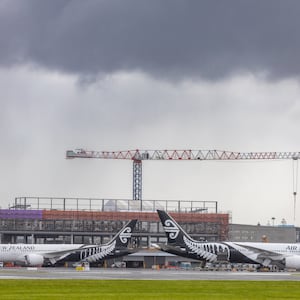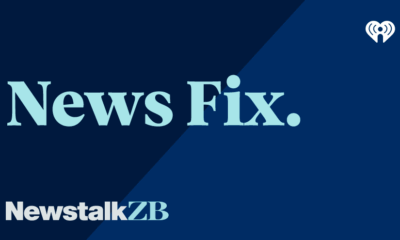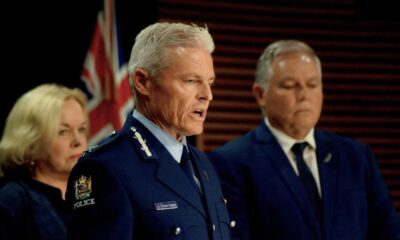Business
Airports Clash with Airlines Over Regulatory Scrutiny

Airports across New Zealand are expressing frustration over what they describe as excessive regulatory scrutiny, while airlines argue that oversight is essential to prevent monopolistic practices. The tension was brought to light following the release of documents indicating that airports are concerned about potential heavy-handed regulations from government agencies.
In April, the Ministry of Business, Innovation and Employment (MBIE) sought feedback regarding the adequacy of existing regulations governing the aviation sector. Wellington Airport, one of the country’s major airports, voiced strong objections to the reviews, asserting that the airport sector is a leading performer within New Zealand’s infrastructure landscape.
Matt Clarke, the chief executive of Wellington Airport, emphasized the need for government bodies to resist pressure from airlines and maintain consistent regulatory frameworks. He stated, “Government agencies must stop bowing to airline pressure, and instead recognise the importance of consistent regulatory settings.” His remarks reflect a broader sentiment among airport authorities that regulatory requirements should not be dictated solely by airline interests.
Airlines, on the other hand, have countered that without rigorous oversight, airports can exploit their position, leading to increased costs for consumers. They argue that many airports operate as monopolies, which can result in unjustified pricing and inadequate service levels. The airline group has urged the MBIE to ensure that any regulatory framework remains vigilant against such practices.
The debate has significant implications for the aviation industry in New Zealand, particularly as the country continues to recover from the impacts of the COVID-19 pandemic. As travel demand rises, the balance between regulation and operational freedom for airports and airlines will be crucial in shaping the future of air travel in the region.
While airports advocate for less restrictive oversight, airlines maintain that scrutiny is necessary to protect consumers from potential exploitation. This ongoing conflict highlights the complex interplay between regulatory bodies, airports, and airlines in ensuring a fair and efficient aviation sector.
In conclusion, the outcome of the MBIE’s review and the subsequent regulatory decisions will likely play a pivotal role in determining the operational landscape for New Zealand’s airports and airlines in the coming years.
-

 World1 week ago
World1 week agoPrivate Funeral Held for Dean Field and His Three Children
-

 Top Stories2 weeks ago
Top Stories2 weeks agoFuneral Planned for Field Siblings After Tragic House Fire
-

 Sports3 months ago
Sports3 months agoNetball New Zealand Stands Down Dame Noeline Taurua for Series
-

 Entertainment3 months ago
Entertainment3 months agoTributes Pour In for Lachlan Rofe, Reality Star, Dead at 47
-

 Entertainment2 months ago
Entertainment2 months agoNew ‘Maverick’ Chaser Joins Beat the Chasers Season Finale
-

 Sports3 months ago
Sports3 months agoSilver Ferns Legend Laura Langman Criticizes Team’s Attitude
-

 Sports1 month ago
Sports1 month agoEli Katoa Rushed to Hospital After Sideline Incident During Match
-

 World2 weeks ago
World2 weeks agoInvestigation Underway in Tragic Sanson House Fire Involving Family
-

 Politics2 months ago
Politics2 months agoNetball NZ Calls for Respect Amid Dame Taurua’s Standoff
-

 Top Stories2 weeks ago
Top Stories2 weeks agoShock and Grief Follow Tragic Family Deaths in New Zealand
-

 Entertainment3 months ago
Entertainment3 months agoKhloe Kardashian Embraces Innovative Stem Cell Therapy in Mexico
-

 World4 months ago
World4 months agoPolice Arrest Multiple Individuals During Funeral for Zain Taikato-Fox


















